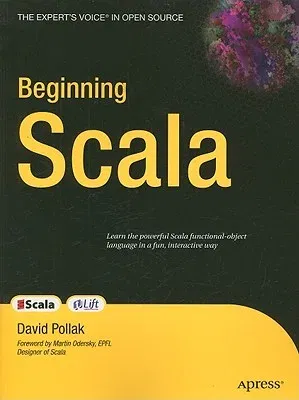David Pollak
(Author)Beginning Scala (Corrected , Corr. 3rd Printing)Paperback - Corrected , Corr. 3rd Printing, 19 May 2009

Qty
1
Turbo
Ships in 2 - 3 days
In Stock
Free Delivery
Cash on Delivery
15 Days
Free Returns
Secure Checkout
Part of Series
Expert's Voice in Open Source
Part of Series
Books for Professionals by Professionals
Print Length
350 pages
Language
English
Publisher
Apress
Date Published
19 May 2009
ISBN-10
1430219890
ISBN-13
9781430219897
Description
Product Details
Author:
Book Edition:
Corrected , Corr. 3rd Printing
Book Format:
Paperback
Country of Origin:
US
Date Published:
19 May 2009
Dimensions:
23.57 x
17.78 x
2.18 cm
ISBN-10:
1430219890
ISBN-13:
9781430219897
Language:
English
Location:
Berkeley, CA
Pages:
350
Publisher:
Weight:
503.49 gm

